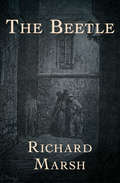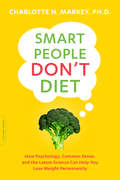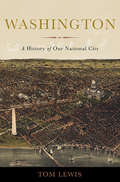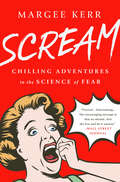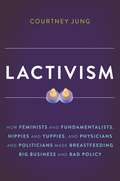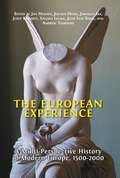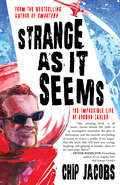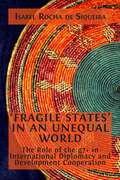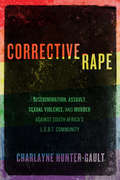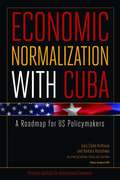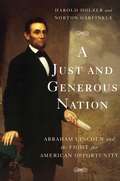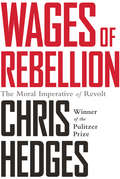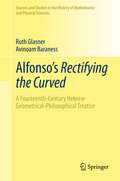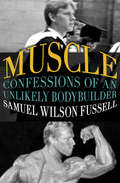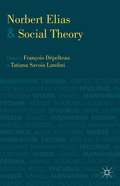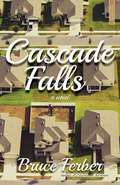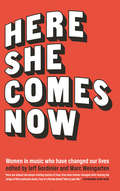- Table View
- List View
Translating Russian Literature in the Global Context
by Muireann Maguire Cathy McAteerTranslating Russian Literature in the Global Context examines the translation and reception of Russian literature as a world-wide process. This volume aims to provoke new debate about the continued currency of Russian literature as symbolic capital for international readers, in particular for nations seeking to create or consolidate cultural and political leverage in the so-called ‘World Republic of Letters’. It also seeks to examine and contrast the mechanisms of the translation and uses of Russian literature across the globe. This collection presents academic essays, grouped according to geographical location, by thirty-seven international scholars. Collectively, their expertise encompasses the global reception of Russian literature in Europe, the Former Soviet Republics, Africa, the Americas, and Asia. Their scholarship concentrates on two fundamental research areas: firstly, constructing a historical survey of the translation, publication, distribution and reception of Russian literature, or of one or more specific Russophone authors, in a given nation, language, or region; and secondly, outlining a socio-cultural microhistory of how a specific, highly influential local writer, genre, or literary group within the target culture has translated, transmitted, or adapted aspects of Russian literature in their own literary production. Each section is prefaced with a short essay by the co-editors, surveying the history of the reception of Russian literature in the given region. Considered as a whole, these chapters offer a wholly new overview of the extent and intercultural penetration of Russian and Soviet literary soft power during the twentieth and twenty-first centuries. This volume will open up Slavonic Translation Studies for the general reader, the student of Comparative Literature, and the academic scholar alike.
The Beetle: Large Print (The\penguin English Library)
by Richard Marsh'No room!-Full up!'He banged the door in my face. That was the final blow. To have tramped about all day looking for work; to have begged even for a job which would give me money enough to buy a little food; and to have tramped and to have begged in vain,-that was bad. But, sick at heart, depressed in mind and in body, exhausted by hunger and fatigue, to have been compelled to pocket any little pride I might have left, and solicit, as the penniless, homeless tramp which indeed I was, a night's lodging in the casual ward,- and to solicit it in vain!-that was worse. Much worse. About as bad as bad could be. I stared, stupidly, at the door which had just been banged in my face. I could scarcely believe that the thing was possible. I had hardly expected to figure as a tramp; but, supposing it conceivable that I could become a tramp, that I should be refused admission to that abode of all ignominy, the tramp's ward, was to have attained a depth of misery of which never even in nightmares I had dreamed. As I stood wondering what I should do, a man slouched towards me out of the shadow of the wall. 'Won't 'e let yer in?''He says it's full. ''Says it's full, does 'e? That's the lay at Fulham,-they always says it's full. They wants to keep the number down. 'I looked at the man askance. His head hung forward; his hands were in his trouser pockets; his clothes were rags; his tone was husky.
Smart People Don't Diet: How the Latest Science Can Help You Lose Weight Permanently
by MarkeyForget the fad diets: an associate professor of psychology (Rutgers) offers a science-based approach to healthy eating and weight management (backed by research from scientists, doctors, nutritionists, and psychologists).
William Moorcroft, Potter: Individuality by Design
by Jonathan MallinsonWilliam Moorcroft (1872-1945) was one of the most celebrated potters of the early twentieth century. His career extended from the Arts and Crafts movement of the late Victorian age to the Austerity aesthetics of the Second World War. Rejecting mass production and patronised by Royalty, Moorcroft’s work was a synthesis of studio and factory, art and industry. He considered it his vocation to create an everyday art, both functional and decorative, affordable by more than a privileged few: ‘If only the people in the world would concentrate upon making all things beautiful, and if all people concentrated on developing the arts of Peace, what a world it might be,’ he wrote in a letter to his daughter in 1930.
Tangible and Intangible Heritage in the Age of Globalisation
by Lilia MakhloufiTangible and Intangible Heritage in the Age of Globalisation is a rich collection that illuminates the complex interrelationships between tangible and intangible heritage. Offering a close and critical examination of heritage preservation in countries including Algeria, Bosnia and Herzegovina, Chile, Egypt, Iran, Japan, Morocco, Oman, Syria and Tunisia, these essays illustrate the need to redefine heritage as an interdisciplinary and intercultural concept. They interrogate heritage paradigms while also providing concrete recommendations to promote the preservation of physical heritage spaces, and the cultural practices and social relationships that depend on them. Rich in detail and broad in relevance, this book emphasises specific cultural realities while also reflecting on the impact of global historical, social, economic and political trends to heritage conservation, scrutinising the conditions of the past to adapt them to the needs of the present and future. It will be of great relevance to all those interested in the preservation and management of heritage sites, including architects, urban planners, landscape architects, historians, sociologists and archaeologists, as well as heritage marketing, museum and cultural tourism professionals.
Washington: A History of Our National City
by Tom LewisOn January 24, 1791, President George Washington chose the site for the young nation’s capital: ten miles square, it stretched from the highest point of navigation on the Potomac River, and encompassed the ports of Georgetown and Alexandria. From the moment the federal government moved to the District of Columbia in December 1800, Washington has been central to American identity and life. Shaped by politics and intrigue, poverty and largess, contradictions and compromises, Washington has been, from its beginnings, the stage on which our national dramas have played out. In Washington, the historian Tom Lewis paints a sweeping portrait of the capital city whose internal conflicts and promise have mirrored those of America writ large. Breathing life into the men and women who struggled to help the city realize its full potential, he introduces us to the mercurial French artist who created an ornate plan for the city “en grande”; members of the nearly forgotten anti-Catholic political party who halted construction of the Washington monument for a quarter century; and the cadre of congressmen who maintained segregation and blocked the city’s progress for decades. In the twentieth century Washington’s Mall and streets would witness a Ku Klux Klan march, the violent end to the encampment of World War I “Bonus Army” veterans, the 1963 March on Washington for Jobs and Freedom, and the painful rebuilding of the city in the wake of Martin Luther King, Jr. ’s assassination. “It is our national center,” Frederick Douglass once said of Washington, DC; “it belongs to us, and whether it is mean or majestic, whether arrayed in glory or covered in shame, we cannot but share its character and its destiny. ” Interweaving the story of the city’s physical transformation with a nuanced account of its political, economic, and social evolution, Lewis tells the powerful history of Washington, DC—the site of our nation’s highest ideals and some of our deepest failures.
With and Without Galton: Vasilii Florinskii and the Fate of Eugenics in Russia
by Nikolai KrementsovIn 1865, British polymath Francis Galton published his initial thoughts about the scientific field that would become ‘eugenics.’ The same year, Russian physician Vasilii Florinskii addressed similar issues in a sizeable treatise, entitled Human Perfection and Degeneration. Initially unheralded, Florinskii’s book would go on to have a remarkable afterlife in twentieth- and twenty-first-century Russia. <p><p> In this lucid and insightful work, Nikolai Krementsov argues that the concept of eugenics brings together ideas, values, practices, and fears energised by a focus on the future. It has proven so seductive to different groups over time because it provides a way to grapple with fundamental existential questions of human nature and destiny. With and Without Galton develops this argument by tracing the life-story of Florinskii’s monograph from its uncelebrated arrival amid the Russian empire’s Great Reforms, to its reissue after the Bolshevik Revolution, its decline under Stalinism, and its subsequent resurgence: first, as a founding document of medical genetics, and most recently, as a manifesto for nationalists and racial purists. <p> Krementsov’s meticulously researched ‘biography of a book’ sheds light not only on the peculiar fate of eugenics in Russia, but also on its convoluted transnational history, elucidating the field’s protean nature and its continuing and contested appeal to diverse audiences, multiple local trajectories, and global trends. It is required reading for historians of eugenics, science, medicine, education, literature, and Russia, and it will also appeal to the general reader looking for a deeper understanding of this challenging subject.
Scream: Chilling Adventures in the Science of Fear
by Margee KerrShiver-inducing science not for the faint of heart. No one studies fear quite like Margee Kerr. A sociologist who moonlights at one of America’s scariest and most popular haunted houses, she has seen grown men laugh, cry, and push their loved ones aside as they run away in terror. And she’s kept careful notes on what triggers these responses and why. Fear is a universal human experience, but do we really understand it? If we’re so terrified of monsters and serial killers, why do we flock to the theaters to see them? Why do people avoid thinking about death, but jump out of planes and swim with sharks? For Kerr, there was only one way to find out. In this eye-opening, adventurous book, she takes us on a tour of the world’s scariest experiences: into an abandoned prison long after dark, hanging by a cord from the highest tower in the Western hemisphere, and deep into Japan’s mysterious "suicide forest. ” She even goes on a ghost hunt with a group of paranormal adventurers. Along the way, Kerr shows us the surprising science from the newest studies of fear--what it means, how it works, and what it can do for us. Full of entertaining science and the thrills of a good ghost story, this book will make you think, laugh--and scream.
Lactivism: How Feminists and Fundamentalists, Hippies and Yuppies, and Physicians and Politicians Made Breastfeeding Big Business and Bad Policy
by Courtney JungIs breast really best? Breastfeeding is widely assumed to be the healthiest choice, yet growing evidence suggests that its benefits have been greatly exaggerated. New moms are pressured by doctors, health officials, and friends to avoid the bottle at all costs--often at the expense of their jobs, their pocketbooks, and their well-being. In Lactivism, political scientist Courtney Jung offers the most deeply researched and far-reaching critique of breastfeeding advocacy to date. Drawing on her own experience as a devoted mother who breastfed her two children and her expertise as a social scientist, Jung investigates the benefits of breastfeeding and asks why so many people across the political spectrum are passionately invested in promoting it, even as its health benefits have been persuasively challenged. What emerges is an eye-opening story about class and race in America, the big business of breastfeeding, and the fraught politics of contemporary motherhood.
The European Experience
by Jan Hansen;Jochen Hung;Jaroslav Ira;Judit Klement;Sylvain Lesage;Juan Luis Simal;Andrew TompkinsThe European Experience brings together the expertise of nearly a hundred historians from eight European universities to internationalise and diversify the study of modern European history, exploring a grand sweep of time from 1500 to 2000.
Strange As It Seems
by Chip JacobsParalyzed from the neck down, Gordon Zahler rose from his deathbed to a fast-talking, Hollywood entrepreneur/idea man who traveled the world, lived hard, married, fantasized about water-skiing and chased his dreams to create one of the largest independent postproduction shops in Hollywood. While this is Jacobs' story about his coming to grips with his deformed uncle, himself and his mother, the silent victim to Gordon's recklessness, Strange As It Seems is also a tip of the hat to the man who turned his back on the notion of I can't.
‘Fragile States’ in an Unequal World
by Isabel Rocha de SiqueiraThis is a book about people. ‘Fragile States’ in an Unequal World: The Role of the g7+ in International Diplomacy and Development Cooperation introduces the members of the g7+, a group formed by 20 conflict-affected states: why they came to believe in politics and policy; how they feel about their work, their family and their communities; and what they want to leave behind for the next generations It is the story of their personal and collective values, their mistakes, and the challenges they faced, and it will resonate with anyone who has tried to organize and work with a group of very different people.
Corrective Rape
by Charlayne Hunter-GaultRape, Sexual Violence, Murder, Discrimination, Assault, LGBT, Lesbian, Gay, Bisexual, Transgender, South Africa, Africa, L.G.B.T.
Economic Normalization With Cuba: A Roadmap For Us Policymakers
by Gary Clyde Hufbauer Barbara KotschwarGary Clyde Hufbauer, Reginald Jones Senior Fellow at the Peterson Institute for International Economics since 1992, was the Maurice Creenberg Chair and Director of Studies at the Council on Foreign Relations [1996-98), the Marcus Wallenberg Professor of International Finance Diplomacy at Georgetown University (1985-92), senior fellow at the Institute (1981-85), deputy director of the International Law Institute at Georgetown University 0979-81), deputy assistant secretary for international trade and investment policy of the US Treasury (1977-79), and director of the international tax staff at the Treasury (1974-76). Among his numerous coauthored books are Local Content Requirements: A Global Problem (2013), The United States Should Establish Permanent Normal Trade Relations with Russia (2012), Figuring Out the Doha Round [2010], and Economic Sanctions Reconsidered, 3rd edition (2007). Book jacket.
A Just and Generous Nation: Abraham Lincoln and the Fight for American Opportunity
by Harold Holzer Norton GarfinkleIn A Just and Generous Nation, the eminent historian Harold Holzer and the noted economist Norton Garfinkle present a groundbreaking new account of the beliefs that inspired our sixteenth president to go to war when the Southern states seceded from the Union. Rather than a commitment to eradicating slavery or a defense of the Union, they argue, Lincoln’s guiding principle was the defense of equal economic opportunity. Lincoln firmly believed that the government’s primary role was to ensure that all Americans had the opportunity to better their station in life. As president, he worked tirelessly to enshrine this ideal within the federal government. He funded railroads and canals, supported education, and, most importantly, issued the Emancipation Proclamation, which opened the door for former slaves to join white Americans in striving for self-improvement. In our own age of unprecedented inequality, A Just and Generous Nation reestablishes Lincoln’s legacy as the protector not just of personal freedom but of the American dream itself.
Toevallige ontmoetingen: Bio-ethiek voor een gehavende planeet
by Kristien HensIn dit rigoureuze en noodzakelijke boek brengt Kristien Hens bio-ethiek en filosofie van de biologie bij elkaar, met het argument dat het ethisch noodzakelijk is om in het wetenschappelijk onderzoek een plaatsje vrij te houden voor de filosofen. Hun rol is behalve ethisch ook conceptueel: zij kunnen de kwaliteit en de coherentie van het wetenschappelijk onderzoek verbeteren door erop toe te zien dat specifieke concepten op een consistente en doordachte manier worden gebruik binnen interdisciplinaire projecten. Hens argumenteert dat toeval en onzekerheid een centrale rol spelen in de bio-ethiek, maar dat die in een spanningsrelatie kunnen raken met de pogingen om bepaalde theorieën ingang te doen vinden als wetenschappelijke kennis: bij het beschrijven van organismen en praktijken creëren we op een bepaalde manier de wereld. Hens stelt dat dit noodzakelijk een ethische activiteit betreft.
Studies in Rabbinic Hebrew
by Shai HeijmansThis volume presents a collection of articles centring on the language of the Mishnah and the Talmud – the most important Jewish texts (after the Bible), which were compiled in Palestine and Babylonia in the latter centuries of Late Antiquity. Despite the fact that Rabbinic Hebrew has been the subject of growing academic interest across the past century, very little scholarship has been written on it in English. Studies in Rabbinic Hebrew addresses this lacuna, with eight lucid but technically rigorous articles written in English by a range of experienced scholars, focusing on various aspects of Rabbinic Hebrew: its phonology, morphology, syntax, pragmatics and lexicon. This volume is essential reading for students and scholars of Rabbinic studies alike, and constitutes the first in a new series, Studies in Semitic Languages and Cultures, in collaboration with the Faculty of Asian and Middle Eastern Studies at the University of Cambridge.
Wages of Rebellion
by Chris HedgesIn the face of modern conditions, revolution is inevitable. The rampant inequality that exists between the political and corporate elites and the struggling masses; the destruction wreaked upon our environment by faceless, careless corporations; the steady stripping away of our civil liberties and the creation of a monstrous surveillance system--all of these have combined to spark a profound revolutionary moment. Corporate capitalists, dismissive of the popular will, do not see the fires they are igniting. In Wages of Rebellion, Chris Hedges--a renowned chronicler of the malaise and sickness of a society in terminal moral decline--investigates what social and psychological factors cause revolution and resistance. Focusing on the stories of radicals and dissenters from around the world and throughout history, and drawing on an ambitious overview of prominent philosophers, historians, and novelists, Hedges explores what it takes to be a rebel in modern times. Hedges, using a term coined by the theologian Reinhold Niebuhr, cites "sublime madness” as the essential force that guides the actions of rebels--the state of passion that causes the rebel to engage in an unwavering fight against overwhelmingly powerful and oppressive forces. From South African activists who dedicated their lives to ending apartheid, to contemporary anti-fracking protestors in Canada, to whistleblowers in pursuit of transparency, Wages of Rebellion shows the cost of a life committed to speaking truth to power and demanding justice. This is a fight that requires us to find in acts of rebellion the sparks of life, an intrinsic meaning that lies beyond the possibility of success. For Hedges, resistance is not finally defined by what we achieve, but by what we become.
Alfonso's Rectifying the Curved: A Fourteenth-Century Hebrew Geometrical-Philosophical Treatise (Sources and Studies in the History of Mathematics and Physical Sciences)
by Ruth Glasner Avinoam BaranessThis volume offers a new English translation, introduction, and detailed commentary on Sefer Meyasher 'Aqov, (The Rectifying of the Curved), a 14th-century Hebrew treatise on the foundation of geometry. The book is a mixture of two genres: philosophical discussion and formal, Euclidean-type geometrical writing. A central issue is the use of motion and superposition in geometry, which is analyzed in depth through dialog with earlier Arab mathematicians. The author, Alfonso, was identified by Gita Gluskina (the editor of the 1983 Russian edition) as Alfonso of Valladolid, the converted Jew Abner of Burgos. Alfonso lived in Castile, rather far from the leading cultural centers of his time, but nonetheless at the crossroad of three cultures. He was raised in the Jewish tradition and like many Sephardic Jewish intellectuals was versed in Greek-Arabic philosophy and science. He also had connections with some Christian nobles and towards the end of his life converted to Christianity. Driven by his ambition to solve the problem of the quadrature of the circle, as well as other open geometrical problems, Alfonso acquired surprisingly wide knowledge and became familiar with several episodes in Greek and Arabic geometry that historians usually consider not to have been known in the West in the fourteenth century. Sefer Meyasher 'Aqov reflects his wide and deep erudition in mathematics and philosophy, and provides new evidence on cultural transmission around the Mediterranean.
Genetic Inroads into the Art of James Joyce
by Hans Walter GablerThis book is a treasure trove comprising core writings from Hans Walter Gabler‘s seminal work on James Joyce, spanning fifty years from the analysis of composition he undertook towards a critical text of A Portrait of the Artist as a Young Man, through the Critical and Synoptic Edition of Ulysses, to Gabler‘s latest essays on (appropriately enough) Joyce’s sustained artistic innovation. Not only does this span of essays trace the evolution of Gabler’s thinking about Joyce’s originality and creative energy. It also reflects the development and maturation of Gabler‘s own genetic criticism and his methodology of genetic editing, which grows in depth and complexity across the collection. The reader will explore Joyce’s life and works through Gabler’s incisive eye, while also examining a progress of his reflections on his edition of Ulysses and the past controversy that beset it. This classic compendium combining well-seasoned scholarship and fresh criticism is an essential read for critics of Modernism, digital humanists, scholars and students of James Joyce, and anyone interested in the art of literary analysis.
Muscle: Confessions of an Unlikely Bodybuilder
by Samuel Wilson FussellA hilarious and harrowing firsthand account of the eccentric world of hardcore bodybuilding When blue-blooded, storklike Samuel Wilson Fussell arrived in New York City fresh from the University of Oxford, the ethereal young graduate seemed like the last person on Earth who would be interested in bodybuilding. But he was intimidated by the dangers of the city--and decided to do something about it. At twenty-six, Fussell walked into the YMCA gym. Four solid years of intensive training, protein powders, and steroid injections later, he had gained eighty pounds of pure muscle and was competing for bodybuilding titles. And yet, with forearms like bowling pins and calves like watermelons, Fussell felt weaker than ever before. His punishing regimen of workouts, drugs, and diet had reduced him to near-infant-like helplessness and immobility, leaving him hungry, nauseated, and prone to outbursts of " 'roid rage. " But he had come to succeed, and there was no backing down now. Alternately funny and fascinating, Muscle is the true story of one man's obsession with the pursuit of perfection. With insight, wit, and refreshing candor, Fussell ushers readers into the wild world of juicers and gym rats who sacrifice their lives, minds, bodies, and souls to their dreams of glory in Southern California's so-called iron mecca.
Norbert Elias and Social Theory
by Fran X00e7 Ois D X00e9 PelteauThis book will compare the approach and works of Norbert Elias, well known for his analysis of the civilizing process, his work on sport and violence and, more largely, his figurational approach, with other important social theories both classical and contemporary.
Cascade Falls
by Bruce FerberCascade Falls explores the failed promise of the American Dream. Raised to believe that with hard work, anything is possible, a staggering number of Americans hate their jobs and see little chance of ever escaping the grind. In his tragicomic followup to the laugh-ridden Elevating Overman, Bruce Ferber asks the question: "How does giving up our dreams affect our relationships and our psyches?" Danny Johnson, a writer whose career never materialized, moves with his wife and children to Cascade Falls, a water-filled, golf community in the bone-dry desert outside of Phoenix. Grudgingly going to work for his father Ted, the Elmer Gantry of home development, Danny's quest for stability ultimately comes up short. His marriage begins to fray and the housing market goes bust, forcing him and those around him to examine their lives anew. Cascade Falls exposes the desperate price paid for sacrificing who we are for how and where we live.
Divine Style: Walt Whitman and the King James Bible
by F. W. Dobbs-AllsoppIn exploring the seminal works of Walt Whitman, the great American poet, many commentators have acknowledged the underlying influence of The King James Bible. However, a study has yet to elucidate the precise manner in which the Bible has shaped Whitman’s poetic style. This is the deficit that F. W. Dobbs-Allsopp seeks to address in his new piece of literary scholarship: 'Divine Style: Walt Whitman and the King James Bible'. Dobbs-Allsopp, Professor of Old Testament at Princeton Theological Seminary, explicitly approaches Whitman from the perspective of a biblical scholar. Utilising his wealth of expertise in this field, he constructs a compelling, erudite and methodical argument for the King James Bible’s importance in the evolution of Whitman’s style – from his signature long lines to the prevalence of parallelism and tendency towards parataxis in his works. 'Divine Style' focuses on Whitman’s output in the years preceding the release of his 1855 opus 'Leaves of Grass' through the general period of the book’s first three editions. In this, Dobbs-Allsopp’s exploration of the period is exhaustive – covering not just Leaves of Grass but recently recovered notebooks, newly digitised manuscripts and additions to the corpus, such as the novel 'Life and Adventures of Jack Engle'. This is a work of careful, detailed scholarship, offering an authoritative commentary that will be a valuable resource for students of Whitman, biblical scholars and scholars of literature more generally.
Here She Comes Now
by edited by Jeff Gordinier Marc WeingartenWhether it was Patti Smith's angry moan, Nina Simone's guttural growl, or Dolly Parton's towering hair and sweet voice, women have been a musical force to be reckoned with, inspired by, and paid attention to. In Here She Comes Now, today's biggest and brightest writers tackle their favorite female musicians and the effect they've had on their own lives. From Rosie Schaap writing about Sandy Denny to Susan Choi writing about Stevie Nicks to Elissa Schappell writing about Kim Gordon, Here She Comes Now thoughtfully and lovingly discusses the extreme badassery of the women who break through all the barriers to truly rock.

